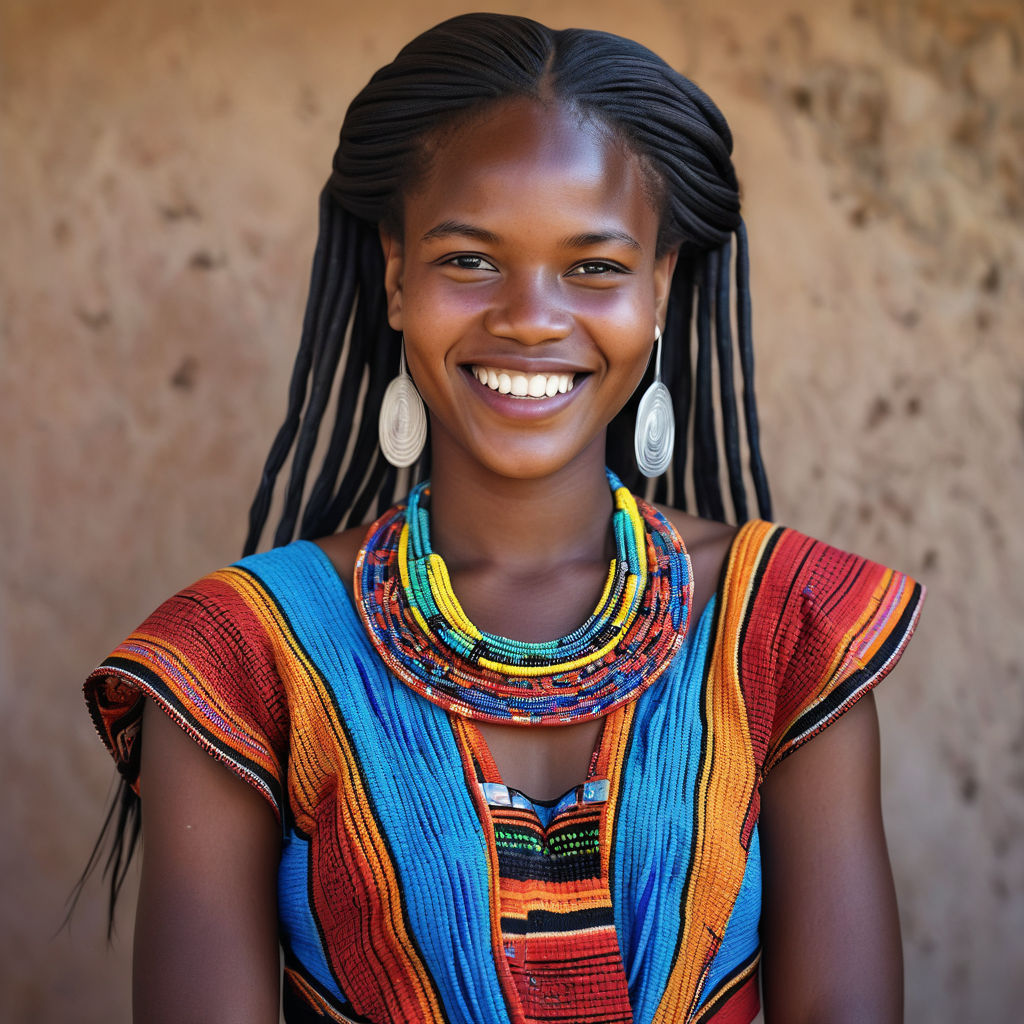Cultural Background
Eswatini women are part of a rich cultural tapestry that blends African traditions with colonial influences, particularly British. This mix shapes their values, customs, and lifestyle.
Example: An Eswatini woman might participate in the Umhlanga, or Reed Dance, celebrating cultural heritage and unity with her community.
Importance: 9/10
Attitude Towards Life
Eswatini women generally maintain a resilient and optimistic attitude towards life, influenced by their strong community bonds and cultural heritage. They value perseverance and maintaining a positive outlook.
Example: An Eswatini woman might face daily challenges with a smile and a supportive network of family and friends.
Importance: 8/10
Social Views
Eswatini women are increasingly embracing progressive social views, especially in urban areas, while traditional views remain strong in rural regions. Issues like gender equality and education are gaining importance.
Example: An Eswatini woman might advocate for girls’ education and participate in community initiatives promoting women’s rights.
Importance: 7/10
Family Values
Family is central to the lives of Eswatini women. They view family as a source of support, strength, and identity. Family gatherings and strong kinship ties are highly valued.
Example: An Eswatini woman might prioritize family events and maintain close relationships with extended family members.
Importance: 9/10
Views on Marriage
Marriage is regarded as a significant institution, blending traditional and modern views. Eswatini women often seek partnerships based on love, mutual respect, and shared responsibilities.
Example: An Eswatini woman might strive to be a supportive partner, valuing both emotional connection and practical collaboration in a marriage.
Importance: 8/10
Views on Sexuality
Sexuality is approached with a mix of traditional and contemporary perspectives. While there is growing openness about sexual health, cultural norms still influence attitudes towards sexuality.
Example: An Eswatini woman might engage in discussions about sexual health with her partner, balancing respect for cultural norms with modern views on intimacy.
Importance: 6/10
Views on Friendship
Friendship is highly valued, with a strong emphasis on loyalty, camaraderie, and shared experiences. Eswatini women often form deep and enduring friendships that provide support and companionship.
Example: An Eswatini woman might regularly meet with her friends for social activities, such as attending local events or enjoying shared hobbies.
Importance: 8/10
Communication Views
Communication is seen as a key element in building and maintaining relationships. Eswatini women appreciate direct and honest communication, fostering mutual understanding and respect.
Example: An Eswatini woman might prefer straightforward conversations and value open dialogue in both personal and professional relationships.
Importance: 7/10
Work Views
Work is an important aspect of life, with many Eswatini women striving for professional success and personal fulfillment. They often balance career aspirations with family responsibilities, seeking meaningful and impactful work.
Example: An Eswatini woman might pursue higher education and career advancement while also ensuring she has time for family and leisure activities.
Importance: 7/10
Money Views
Financial stability is important, but Eswatini women also value experiences and personal growth. They aim to balance saving with spending on enriching activities and meaningful experiences.
Example: An Eswatini woman might save diligently for future security while also enjoying travel, hobbies, and social activities.
Importance: 7/10
In summary, Eswatini women are characterized by their resilience, optimism, and strong sense of community. They value family, friendships, and cultural traditions while balancing modern and traditional views. They strive for personal and professional fulfillment, making their lives dynamic and multifaceted.
